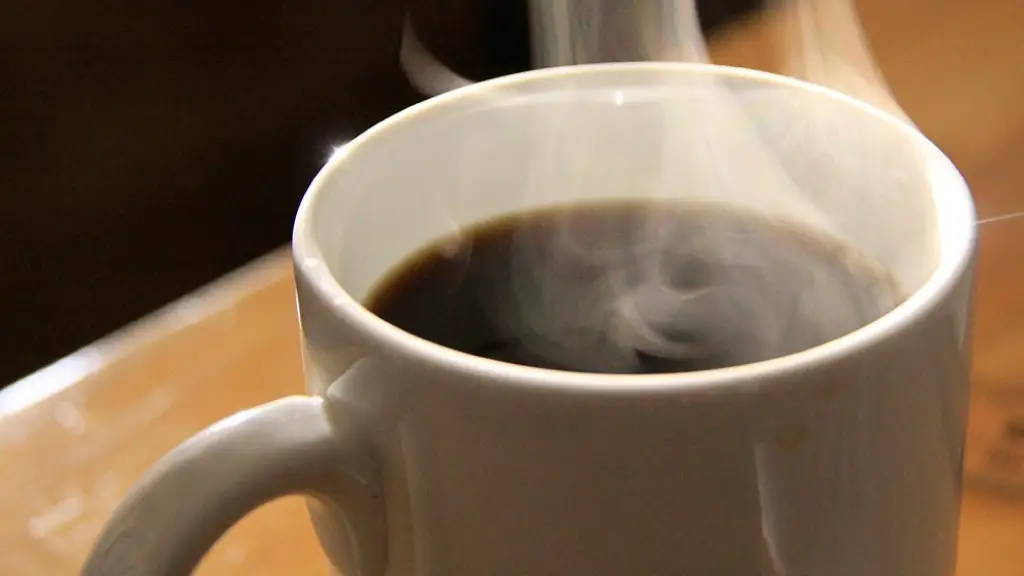Coffee and energy drinks can both be great sources of energy, but what is healthier? When it comes to this drink debate, the verdict is mixed. Coffee and energy drinks are two popular options for days when we’ve stayed up too late, or when we need a pick-me-up mid-afternoon. While both offer a shot of energy, the caffeine content of energy drinks is higher than that of coffee. Some people think energy drinks are potentially more dangerous than coffee, but that isn’t always the case.
To truly understand the potential positives and negatives of these beverages, we need to look at the data. When it comes to caffeine content, a cup of coffee generally has around 100-200mg of caffeine while energy drinks typically have around 80-300mg, with some containing up to 500mg.
But caffeine isn’t the only ingredient that matters. Energy drinks often contain sugar, artificial sweeteners, and other additives that are not present in coffee. Regular consumption of these drinks can contribute to obesity, diabetes, and other health problems. Coffee, on the other hand, is generally considered to be healthier, as long as it is consumed in moderation.
Experts suggest that if you are looking for a source of energy, coffee is a healthier and more sustainable option. Caffeine from coffee can also help to improve alertness and concentration, although energy drinks offer a more intense energy boost. The key to achieving a healthy lifestyle is to be aware of the potential harms of any food or drink and exercise caution and moderation.
For some, coffee and energy drinks offer different purposes. Coffee is often seen as a morning pick-me-up and a way to get into a productive flow state. Energy drinks, on the other hand, can be used to give an intense and quicker boost of energy, often for physical activities like exercise or for a burst of study. Ultimately, when it comes to coffee or energy drinks, it all comes down to personal preference and the need for energy.
Energy drinks and dehydration
Energy drinks contain electrolytes, which can help replenish lost fluids from strenuous exercise. But, due to the high caffeine content, these drinks also contain a high amount of diuretic, which can cause dehydration. Dehydration can lead to poor performance and may even be dangerous in some cases. As a result, it’s important to be aware of any health risks associated with energy drinks, and to balance the intake with adequate water and other beverages.
It’s also important to look at the long-term effects of energy drinks. Studies have shown that over-consumption of energy drinks can increase the risk of heart disease, stroke, and other cardiovascular problems. This is due to the combination of caffeine, sugar, and other ingredients in the drinks.
So if you’re looking for an energy boost, it’s worth considering the positives and negatives of both coffee and energy drinks. Coffee can offer the energy you need without the added risk of dehydration, but energy drinks can provide an intense and quick burst of energy. Ultimately, the choice is yours.
Coffee and mental health
Research has shown that drinking coffee can have a positive effect on mental health. Coffee consumption has been linked to improved memory, concentration, and overall cognitive performance. Coffee is also a great source of energy and helps to increase alertness. In addition, coffee can increase serotonin levels in the brain, which has a calming and anti-anxiety effect.
But, as with energy drinks, moderation is important when it comes to consuming coffee. Too much coffee can lead to anxiety, insomnia, restlessness, and irritability. The recommended intake is 2-4 cups of coffee per day, and even then, some people are more sensitive to the effects of coffee than others.
Coffee can also cause gastrointestinal and digestive symptoms, such as bloating, constipation, and acid reflux. If you experience these symptoms, it’s important to reduce your coffee intake or speak to your doctor about other options.
Overall, coffee can be a beneficial part of a healthy diet. If consumed in moderation, it offers a boost of energy and can potentially have positive effects on your mental health. But excessive coffee intake can cause more harm than good, so it’s important to be aware of the potential risks.
Energy drinks and sports performance
Energy drinks can be beneficial for people who need a quick burst of energy for physical activities, such as sport or exercise. However, it’s important to consider the potential risks of consuming energy drinks. A key component of energy drinks is caffeine, which can enhance performance and provide a quick boost of energy. But, it’s important to be aware that too much caffeine can cause jitters and anxiousness, and can interfere with equilibrium and coordination.
The American College of Sports Medicine suggests consuming no more than 400mg of caffeine at one time, which is the equivalent of four cups of coffee or two energy drinks. It’s also important to be aware of the long-term consequences of energy drinks, as excessive consumption has been linked to many health problems, including heart disease, stroke, and diabetes.
Overall, energy drinks can be beneficial for an immediate energy boost, but it’s important to be aware of how much caffeine you’re consuming and to stick to the recommended intake. Over-consumption of these drinks can have serious health implications, so moderation is key.
Sugar content in energy drinks
In addition to caffeine, energy drinks contain sugar, which can contribute to weight gain and other health problems. Some energy drinks contain up to 54 grams of sugar per can, which is equivalent to 13.5 teaspoons of sugar. Regular consumption of these beverages can contribute to obesity, diabetes, and other health concerns.
Too much sugar can have a negative effect on mental wellbeing, and can lead to headaches and poor concentration. For this reason, experts suggest avoiding energy drinks and opting for healthier alternatives, such as coffee. Coffee does not contain added sugar, which makes it a more sustainable option for an energy boost.
In addition to sugar, energy drinks may also contain ingredients such as taurine, guarana, and ginseng, which can have a stimulating effect on the body. While these ingredients can offer an energy boost, it’s important to be aware of any potential side effects and to drink in moderation.
For those looking for an energy boost, it’s important to be aware of the potential benefits and risks of both coffee and energy drinks. Coffee is generally the healthier option, as it doesn’t contain added sugar or other potentially harmful ingredients. But energy drinks can offer an intense and quick burst of energy, particularly for physical activities. Ultimately, the choice between these beverages is yours.




